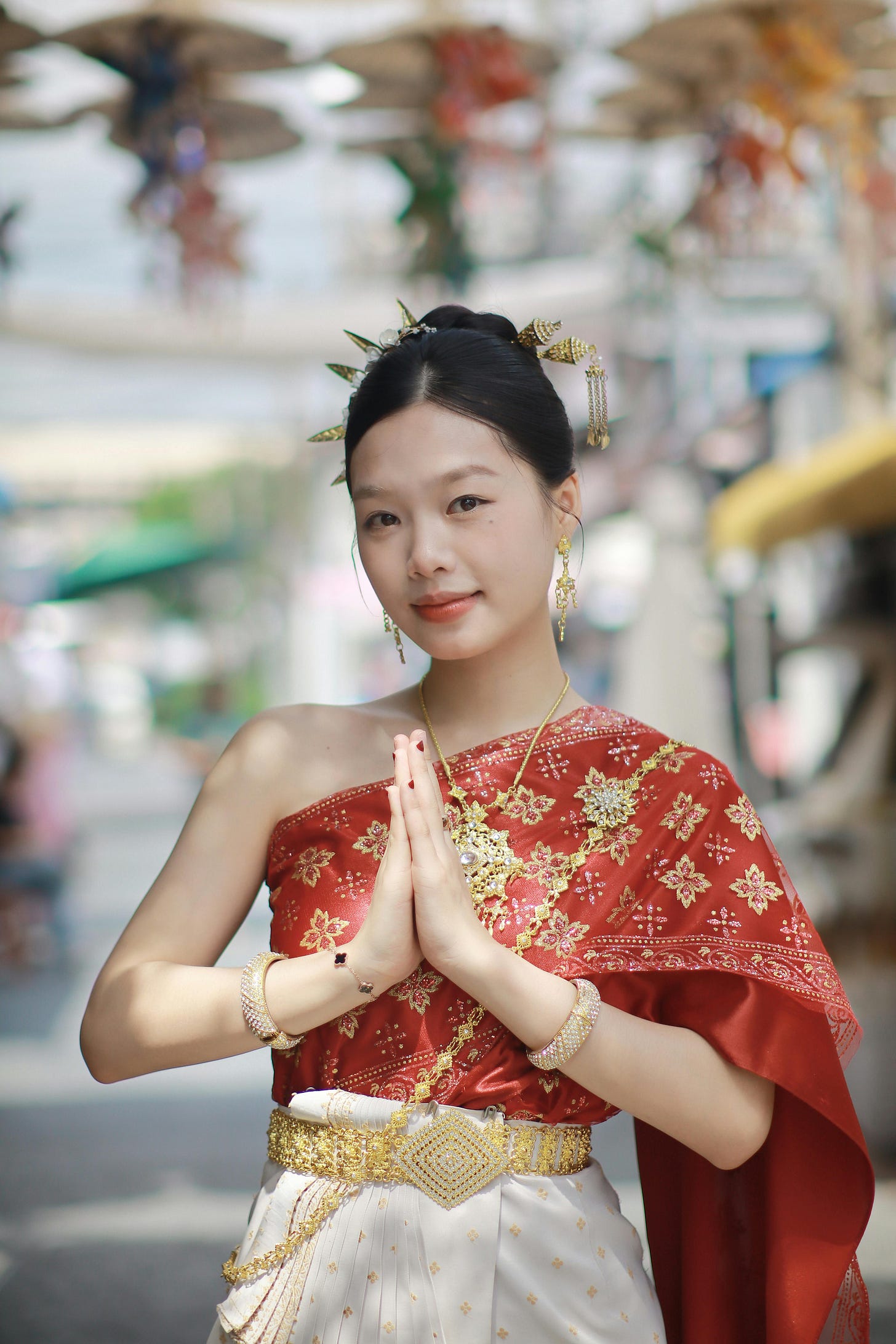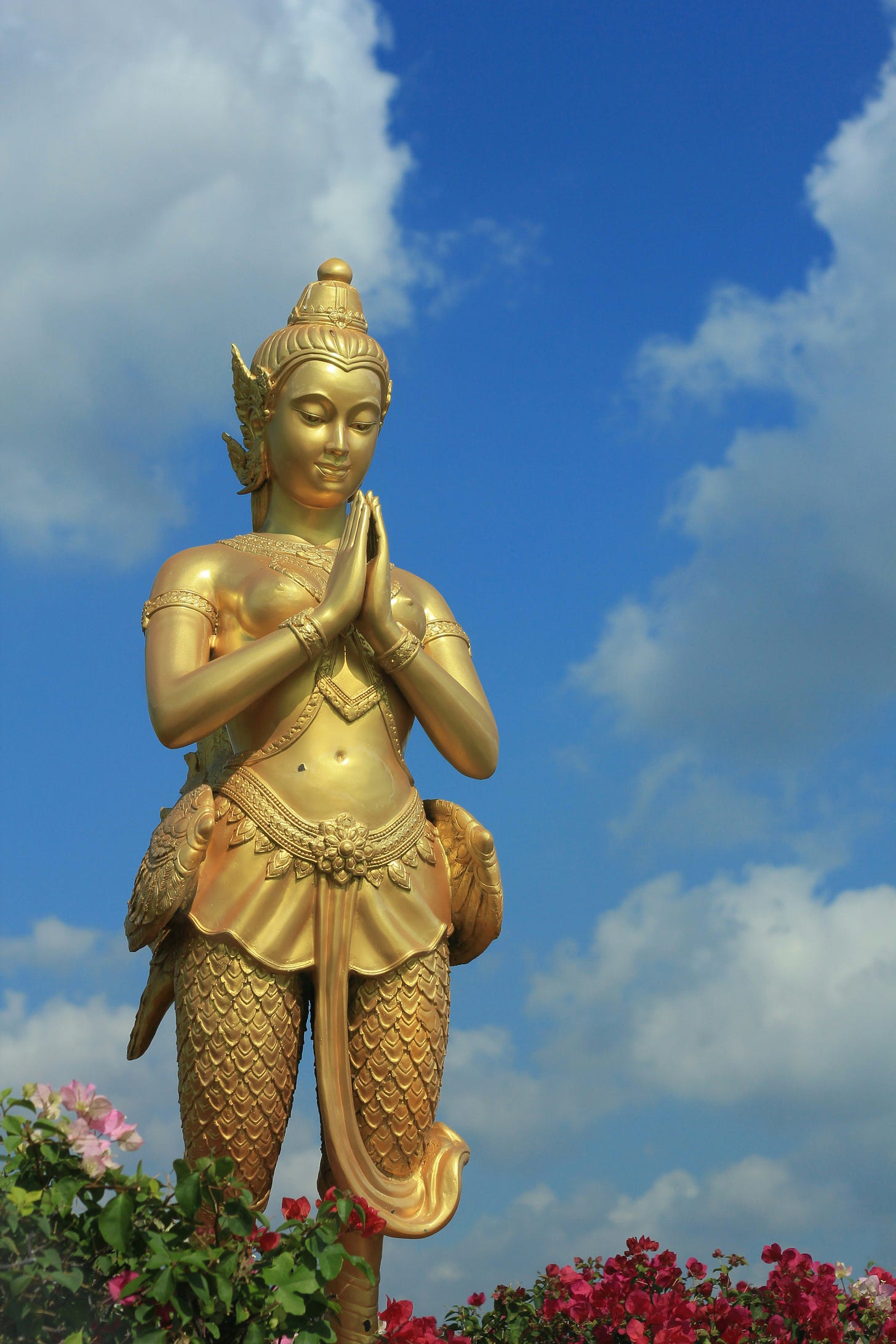
I love exploring the rich tapestry of global cultures and discovering new and intriguing concepts that help shape a people's identity and belief systems. This is one of the main reasons why I love to travel.
For example, I admire the Japanese concept of Ikigai, which means "a reason for being." Ikigai is not just about finding a job or a hobby but about discovering your overall purpose and what brings you joy and fulfillment. It encompasses finding happiness and purpose in life, often through passion, mission, and profession. It's about discovering what truly matters to you and living a life filled with meaning and fulfillment.
Also, the Danish and Norwegian concept of Hygge refers to a feeling of contentment and well-being, often associated with creating a warm and inviting atmosphere through simple pleasures and togetherness. It is so simple yet so profound.
Learning about and studying these cross-cultural concepts expands our own ideas, beliefs, and patterns of thinking.
My short time in Thailand has been full of new revelations about the joy and unifying power of respect.
The "Kreng Jai" concept is a vital and omnipresent element of this culture. Despite its significance, the term does not have a direct English translation, making it all the more interesting for those unfamiliar with its deep layers. Kreng Jai encompasses a blend of respect, consideration, and deference, which informs how individuals interact socially and professionally. I will attempt to unravel some of the layers of Kreng Jai, searching for its origins, applications, and implications in Thai society.
The Origin of Kreng Jai
The term "Kreng Jai" derives from two Thai words: "Kreng," which means to fear or be apprehensive, and "Jai," which refers to the heart. Combined, they reflect the notion of being cautious regarding others' feelings, specifically, a fear of hurting someone's heart. This illustrates a fundamental principle in Thai culture: the desire to maintain harmony and prevent discomfort in social interactions.
The roots of Kreng Jai are deeply embedded in the ancient traditions of Thailand, where social cohesion and community well-being were paramount. In a society where collectivism often takes precedence over individualism, it's not surprising that a concept like Kreng Jai would evolve, emphasizing the importance of interpersonal relationships and mutual respect.
Kreng Jai in Everyday Life
Kreng Jai manifests in various ways during daily social interactions in Thailand. For instance, a Thai person may often refuse an invitation or decline a favor not out of a lack of interest or gratitude but to avoid imposing on someone else's time and resources. This behavior reflects high emotional intelligence, as the individual is keenly aware of the other person's circumstances.
Consider a situation where someone is invited to a gathering but declines, saying, "I can't make it; thank you for inviting me." On the surface, it may appear like a simple refusal. However, the underlying message layered in this response often resonates with Kreng Jai: the individual does not wish to burden the host with their presence if it might cause any inconvenience.
This mindful attitude extends to many facets of life. For example, sharing personal opinions in group settings can sometimes be clouded by Kreng Jai. Thais may refrain from voicing disagreements or criticisms, especially in the presence of authority figures. This inclination to avoid confrontation contributes to a serene atmosphere but can also inhibit open dialogue, potentially stifling innovation and progress in various settings.
The Workplace Dynamics and Kreng Jai
The implications of Kreng Jai can be particularly profound in professional environments. The workplace, often considered a microcosm of society, reflects the complexities of social hierarchies and cultural values. Due to a sense of Kreng Jai, employees may avoid expressing dissent or sharing ideas that diverge from their superiors' viewpoints. While this behavior can foster an image of loyalty and alignment, it can also lead to a culture where creativity and critical thinking fluctuate.
Imagine a meeting where a new project is being discussed. If team members silently disagree with a proposed plan out of fear of disappointing their manager, they may move forward without everyone fully on board. In environments where Kreng Jai, or a reluctance to express disagreement, prevails, open communication can be sacrificed to maintain harmony (or the appearance of harmony). While it is important to respect authority, it is crucial to strike a balance that allows all individuals to voice their opinions. This approach fosters a culture of collaboration rather than silence.
Kreng Jai Beyond Social Norms
Understanding Kreng Jai is essential for anyone looking to immerse themselves in Thai culture. It extends beyond normal social norms and provides a framework for interpreting Thai behaviors and emotions.
The Thai people's reverence for Kreng Jai is evident when interacting with foreigners. An expatriate or a traveler might notice that Thais frequently go out of their way to accommodate guests, whether by offering food, navigating local customs, or volunteering assistance. Such behaviors exemplify the Thai spirit of hospitality, rooted in respect and the desire to ensure others feel comfortable and valued.
On my first day at my new job teaching at a public secondary school (junior high and high school), I was overwhelmed by my fellow teachers' small gifts, such as snacks, water, office supplies, and what I thought was another teacher's lunch. I later found out she brought extra for me and always does this with new teachers.
This cultural framework can confuse those from different backgrounds, particularly in cultures where directness and assertiveness are encouraged. In Western contexts, voicing dissent or criticism may be seen as healthy discourse; however, this approach could be perceived as disrespectful or disruptive in Thailand. Therefore, recognizing the underlying reasons for Kreng Jai can enhance cross-cultural communication and understanding.
Navigating Cultural Misunderstandings
As globalization continues to bridge cultural gaps, misunderstandings can arise, particularly regarding concepts like Kreng Jai. Visitors or expatriates may misinterpret polite refusals as disinterest or insincerity. Conversely, Thais might view more straightforward communication styles as aggressive or disrespectful.
To minimize these misunderstandings, it is important for outsiders coming into the Thai culture to adopt a learner perspective and work for open-mindedness. Active listening and keen observation can reveal deeper meanings behind interactions, allowing for a richer appreciation of the social dynamics at play. Moreover, asking questions with genuine curiosity can provide insights that foster understanding and respect. Engaging in conversations about cultural differences can reveal the significance of Kreng Jai, enriching both experiences.
It is essential to remember that being different is not wrong.
Because someone acts differently than what you would deem 'normal,' it doesn't mean it is a wrong or inappropriate response. Working towards understanding is beneficial, as it will help grow your perspectives and experiences.

The Balancing Act of Kreng Jai
While Kreng Jai embodies the best of Thai values, such as respect and kindness, it also presents challenges. The delicate balance between maintaining harmony and expressing individuality can sometimes lead to frustration, especially for those who may feel constrained by the expectations surrounding Kreng Jai.
Some Thai individuals may be reluctant to challenge opinions or propose new ideas, potentially leading to stagnation in various fields, whether in business, education, or community initiatives. Thus, the evolution of Kreng Jai, while rooted in tradition, may also require adaptation, allowing for more open forms of expression without sacrificing the essence of respect and consideration.
More discussions are emerging around embracing Kreng Jai while encouraging a culture of innovation and expression. Many recognize that fostering a safe space for dialogue within the framework of Kreng Jai can lead to breakthroughs. As younger generations navigate these dynamics, they may redefine Kreng Jai, striking a balance between respect for tradition and the need for open communication.
Embracing the Beauty of Kreng Jai
Kreng Jai offers a beautiful insight into the intricacies of Thai culture. It emphasizes respect, consideration, and the interconnectedness of people within their communities. While it serves as a vital social glue that allows for harmony in interactions, it poses challenges that may hinder open dialogue and creativity.
Recognizing the nuances of Kreng Jai is essential for anyone seeking to understand or engage with Thai culture. It reflects the Thai people's kindness and innate desire to maintain harmony in social interactions. As we navigate our increasingly globalized world, embracing concepts like Kreng Jai can enrich our understanding of the layers of human cultures, leading to greater empathy and connection across borders. By appreciating the role of Kreng Jai in Thai society, we honor a cultural legacy and recognize the universal values of respect and consideration that resonate with all of humanity.
Post Script: Embracing the Lessons of New Cultures
As you can see, exploring and learning from different cultures has rich and meaningful benefits. Seeing things from other perspectives helps us grow and develop into better, more well-rounded humans.
I love this quote from Saint Augustine, "The world is a book, and those who do not travel read only one page."
So go travel. Plan a trip. Go somewhere you haven't been and see the world open up like never before. And don't forget to let me know what you learn!



